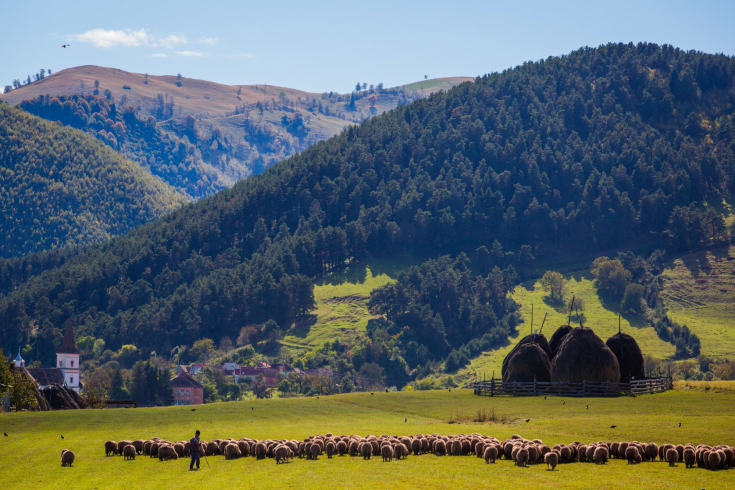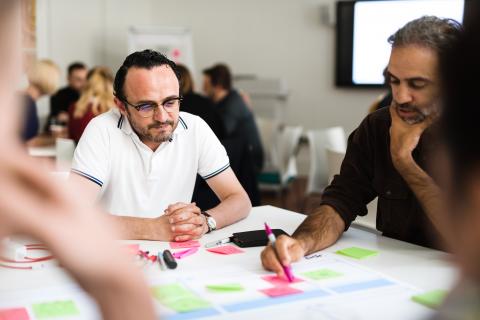Governance and finance for protected areas

On 11-12 May 2022, the Policy Learning Platform held an online peer review for the municipality of Rasinari.
The municipality of Rasinari requested advice regarding their policy challenge of governance and finance for protected areas.
A detailed description of the challenge and recommendations can be found in the follow-up report which will soon be published.
Current state of affairs
The municipality of Rasinari belongs to a mountain region Marginimea Sibiului in the center of Romania, part of Sibiu County, at the foothills of the Carpathians Mountains. More than 55% of Marginimea Sibiului is part of the Natura 2000 protected areas.
The region has a Management Plan for Natura 2000 sites but lacks human resources to monitor its implementation on site.
Agriculture and sheep herding still remain the main sources of income for population in the rural areas. The protection of natural areas overlaps with private and public landowners and forest owners.
To resolve this conflict of interest, specific measures are included in the management plan, including financial support for conservation measures for landowners, farmers and forest owners.
However, even though these financial compensations for conservation measures are described in the management plan and even in the Romanian legislation, they have not been implemented.
To address the challenges related to governance and financing of protected areas, Rasinari has shown interest in the experience of other regions and municipalities to get a better understanding of:
- what governance structure can be used in Natura 2000 protected areas, how to involve stakeholders and mitigate conflict of interests,
- what financial instruments can be used to finance the implementation of protection measures
Peers from across Europe
Alongside Magda Michaliková and Astrid Severin, our environment and resource efficiency Thematic Experts, five excellent peers were invited, and participated in the peer review:
- Darren Saliba, Heritage Parks Federation, Malta
- Daniela Ivanova Borisova, “Vratchanski Balkan” Nature Park, Bulgaria
- Jarmila Jandová, Regional office of Usti region, Czech Republic
- Yoram Krozer, Sustainable Innovations Academy, The Netherlands
- Maia Lordkipanidze, University of Twente, Netherlands
The experts came together to share their experience and to provide recommendations for ways of tackling Rasinari’s challenges related to governance and finance in protected areas. They provided the host with valuable insight, know-how and practical suggestions for solving the challenges presented above.
Recommendations
The peers presented different governance models, shared tips on how to best involve local stakeholders and mitigate conflicts of interest, and described an abundance of financial instruments available to Rasinari such as volunteering and public involvement, sponsorship schemes, educational activities, publications, eco-tourism activities, EU funds, LEADER program, entry fees, payments for ecosystem services (permits for hunting and fishing).
The peers recommended the host to:
- develop a strategy that allows to balance nature protection and tourism,
- assess different potential governance structures,
- involve all local stakeholders to create win-win opportunities and local added value,
- implement a mix of different activities to finance nature conservation and restoration,
- consider semi-commercial activities with use of local products and resources,
- find new innovative approaches,
- conceive a communication plan for different stakeholder groups,
- offer trainings to land and forest owners and pro-actively address and mitigate conflicts
The host’s policy challenges and all the peer suggestions will be found in the follow-up report which will be published soon.
Outcome
Pleased with the outcome of two full days of intense discussions moderated by the Policy Learning Platform Carmen Ghidiu, from Municipality of Rasinari, commented:
“We would like to thank everyone for an amazing peer review that provided us with inspiration for protected areas and Natura 2000 sites in Marginimea Sibiului. This Interreg Europe peer review enlightened us in so many ways and with excellent examples about governance, collaboration and financial instruments. It exceeded our expectations and I am so grateful to be part of it! ”
Calin Leocuta, from the National Authority for Protected Areas added:
“The diversity of different approaches to governance and financing of protected areas has been really surprising. There are many different models and a lot to learn from our homologues in other regions so that we can improve our own approach.”
From the side of the peers, Daniela Borisova, from ‘Vratchanski Balkan’ Nature Park, Bulgaria remarked:
“The peer review has been a very pleasant experience. It was really interesting and exciting to hear about know-how and approaches of the colleagues from other protected areas.”
The host used the peer review to involve local stakeholders in a very lively discussion and is now assessing the recommendations received from the peers to see how they could inform the decision-making process to improve the governance and financing of Natura 2000 sites in the region.
Apply for a peer review
Find solutions to your policy challenges together with our experts and peers!

